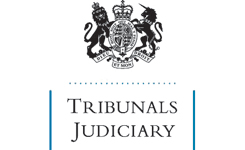|
Notes:
|
Reported as [2012] AACR 30.
Disability living allowance – suspension of payment while “undergoing medical or other treatment as an in-patient … in a hospital or similar institution” – care home without qualified nursing staff
The claimant had severe learning difficulty and other conditions and was resident in a care home (“The Lodge”), which was registered as a care home only, not as a nursing home, and did not purport to provide nursing care. The cost of his accommodation was paid by the National Health Service. He had been in receipt of the higher rate of the mobility component and the highest rate of the care component of disability living allowance while living at home, but a decision was made that neither component was payable while he was in the care home on the ground that he was being “maintained free of charge while undergoing medical or other treatment as an in-patient … in a hospital or similar institution under the [National Health Service Act 2006]” within regulations 8 (care component) and 12A (mobility component) of the Social Security (Disability Living Allowance) Regulations 1991. He appealed against the decision, contending that the fact that The Lodge did not have qualified nursing staff meant that he was not in a “hospital or similar institution” and therefore that neither regulation 8 nor regulation 12A applied. Regulation 9, which provides for suspension of payment of the care component for periods of residence in care homes, was amended in 2002 to exclude services provided pursuant to the National Health Service Act 2006. The tribunal dismissed his appeal, finding that The Lodge was a “hospital or similar institution”. The claimant appealed to the Upper Tribunal. The Upper Tribunal judge made an interim decision holding that “medical or other treatment” in regulations 8 and 12A did not extend to the exercise of care and skill by trained carers with no medical or nursing qualification and that in order to fall within the regulations there had to be at least some “treatment” being received in the institution in which the respondent was an “in-patient”. He further held that an ordinary care home not providing medical or nursing treatment was not a “hospital or similar institution”, and that the fact that the respondent was receiving some medical treatment outside The Lodge did not therefore bring him within the scope of either regulation. The judge left open for subsequent determination the question whether it would make any difference if the claimant was in receipt of significant treatment, at The Lodge, from healthcare professionals not employed by The Lodge. He gave the Secretary of State permission to appeal the interim decision to the Court of Appeal.
Held, dismissing the appeal, that:
1. although it was common ground that the court had jurisdiction to entertain an appeal against an interim decision of the Upper Tribunal, it would have been much better for the judge to have determined the outstanding issue so that the court could have considered the appeal by reference to a full set of relevant facts without being required to make an assumption that the respondent did not receive treatment from or under the supervision of doctors or professionally qualified nurses at The Lodge (paragraphs 37, 65 and 71);
2. on that assumption, the respondent could not be said to be undergoing “medical or other treatment”. Following Minister of Health v Home for Incurables at Leamington Spa [1954] Ch 530 and other cases, such treatment includes nursing, but the nursing must be of a professional character, that is, administered by, or under the direction or supervision of, a qualified doctor, nurse or nurses. The various references in those cases to professional qualifications and training were fundamental to the reasoning of the court and later developments in nursing did not undermine the basis of the decisions or call for a different approach: Chief Adjudication Officer v White (reported as R(IS) 18/94) and Chief Adjudication Officer v Botchett (reported as R(IS) 10/96) also considered (paragraphs 54, 75 to 78);
3. the amendment of regulation 9 in 2002 so that it did not apply where services were funded by the National Health Service had no obvious policy rationale, but, whatever led to it, the amendment could not alter the meaning of regulation 8 and there was no reason why the court should step in to modify the consequences of the amendment by a strained interpretation of regulation 8. While it was undesirable for double provision to be made from public funds in respect of a single set of care and mobility needs, there was not a sufficiently clear-cut policy behind the drafting of the regulations to justify a departure from their natural meaning as elucidated by the authorities (paragraphs 57 and 69);
4. the court having found that the claimant was not undergoing “medical or other treatment” it really followed that he was not “an in-patient … in a hospital or similar institution”, but it was not necessary to give separate consideration to that question and the wording of regulations 8 and 12A needed to be considered as a whole and not broken down into separate or prioritised parts (paragraphs 58, 68 and 79);
5. the receipt of medical or other treatment from healthcare professionals away from The Lodge was treatment as an out-patient and could not bring the claimant within the scope of the regulations. The whole tenor of regulations 8 and 12A is that the person is undergoing treatment “in” the institution where he is maintained free of charge and that is underlined by the words “as an in-patient”. Those words are an integral part of the condition and qualify “medical or other treatment” just as much as they qualify “maintained free of charge … in a hospital or similar institution” (paragraphs 59 and 79).
|
